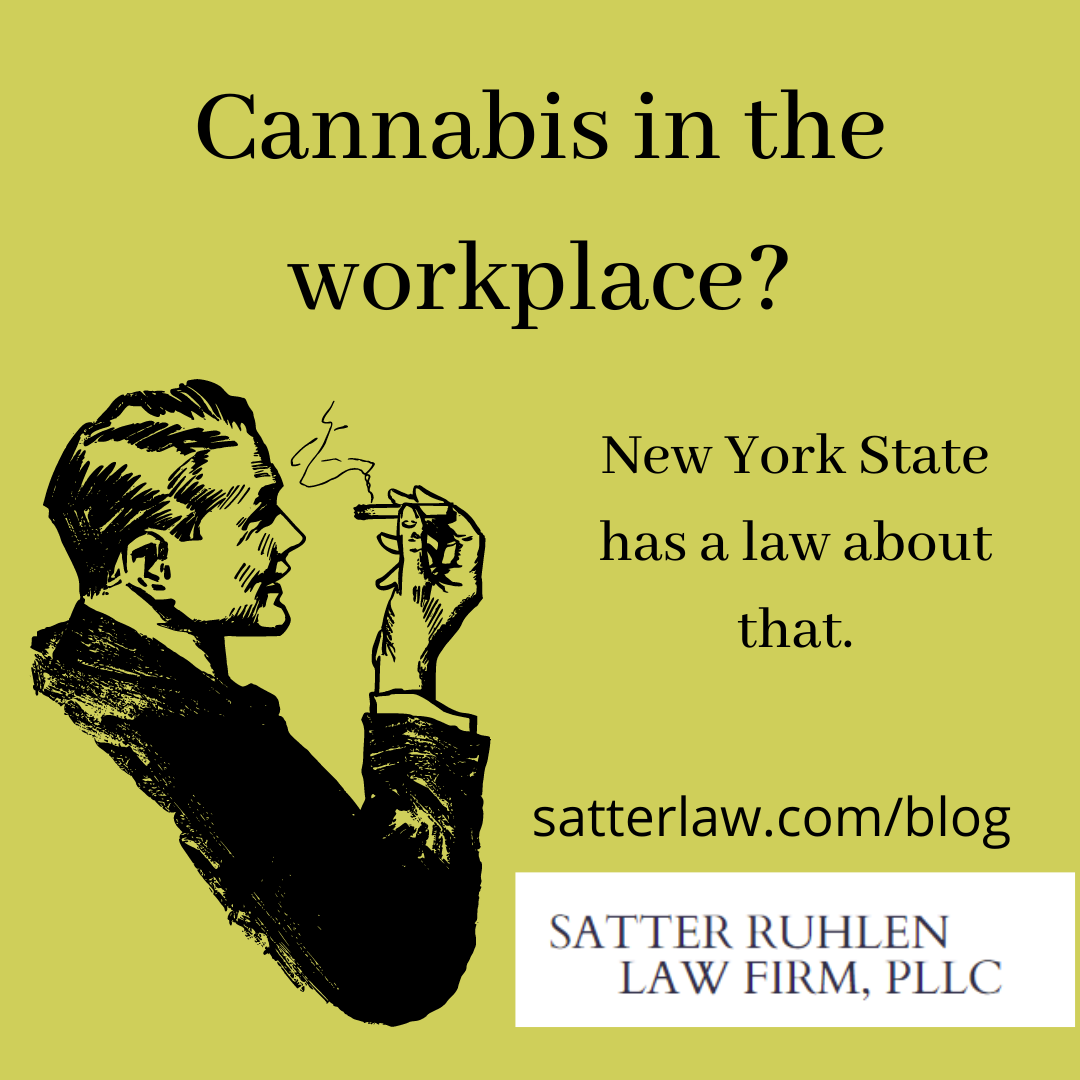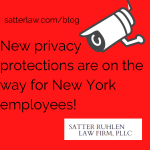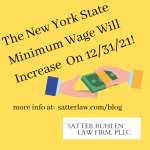Most New York Employers Can No Longer Drug Test Employees For Cannabis
On July 1, 2021, I blogged about the intersection of legalization of recreational cannabis use and an employee’s workplace rights in New York. At that time, the New York State Department of Labor [“NYS DOL”] had not yet weighed in on whether employers may continue to test employees for cannabis now that recreational use is legal in New York or addressed other issues created by cannabis legalization. On October 8, 2021, however, NYS DOL released guidance clarifying workplace rights in the post legalization era. Adult Use Cannabis And The Workplace – New York Labor Law 201-D (October 8, 2021).
Review of NYS DOL guidance tells us the following:
- Drug testing for cannabis is now permitted only when federal, or state, law requires drug testing or makes it a mandatory requirement of the position. For example, when federal or state law mandates drug testing for drivers of commercial vehicles or other safety sensitive positions, cannabis drug screening, be it pre-employment, randomized, or in response to an accident or injury, is permissible.
- To impose discipline against an employee suspected of being under the influence of cannabis at work, an employer must show that the employee manifests “specific articulable symptoms of impairment” that decrease the performance of their duties or interfere with an employer’s obligation to provide a safe workplace as required by state and federal occupational safety and health laws.
So, what exactly are “articulable symptoms of impairment?” The guidance does not provide a list of specific symptoms but explains that the symptoms must be “objectively observable indications that the employee’s performance of the duties of the position are decreased or lessened.” This appears to mean that neither a positive drug test for cannabis nor the smell of cannabis on one’s clothing can serve as the sole basis for an employer’s conclusion that an employee was impaired by marijuana at work and therefore subject to discipline.
Keep in mind that cannabis legalization does not prevent an employer from prohibiting cannabis use during “work hours,” which includes unpaid breaks and mealtimes, even if the employee leaves the worksite. Employers can also prohibit the use of cannabis during periods when an employee is “on call.” In addition, employers can also prohibit cannabis possession while at work and prohibit cannabis use, and possession, in company vehicles or on company property, even after regular business hours or shifts. When a remote employee works from the confines of a private residence, however, an employer cannot prohibit possession of cannabis at the remote location because the term “worksite” does not include a remote employee’s private residence. N.Y. Lab L. §201-D. As such, an employer can only impose discipline of a remote employee if s/he exhibited articulable symptoms of impairment during work hours, not for possession of cannabis.
If you believe you have been improperly disciplined by your employer for legal use of cannabis, contact a workers’ rights attorney.







